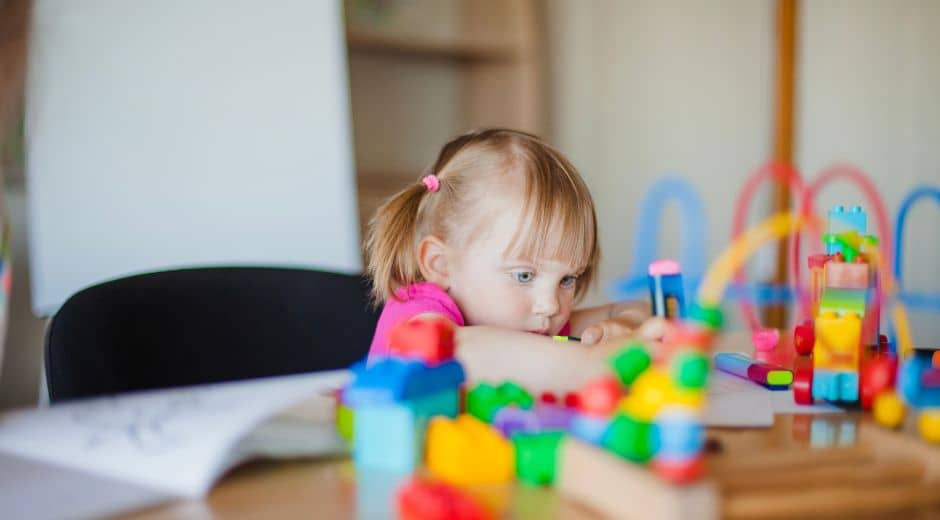Teaching Essential Emotional Intelligence Through Education
Teaching Essential Emotional Intelligence Through Education
In today’s fast-paced and often competitive world, academic success is important, but emotional intelligence plays an equally vital role in a child’s development. Teaching children to understand, manage, and express their emotions effectively helps them navigate relationships, cope with challenges, and thrive both academically and personally. Emotional intelligence encompasses self-awareness, empathy, emotional regulation, and social skills—all foundational for lifelong success.
Parents and educators who prioritize emotional learning create a supportive environment where children can grow holistically. By combining Teaching techniques with practical activities, children gain the skills to recognize emotions in themselves and others, develop empathy, and build healthy relationships.
Why Emotional Intelligence Matters
Emotional intelligence is more than a buzzword—it is a crucial aspect of human development. Children with strong emotional skills are better equipped to handle stress, resolve conflicts, and collaborate effectively with peers. They show improved academic performance because emotional regulation allows them to concentrate, process information, and persist through challenges.
Through Teaching, children learn to recognize their own emotional states and respond thoughtfully rather than impulsively. Parents and teachers can model healthy emotional behavior, reinforcing these lessons in daily interactions. Creating spaces for conversation about feelings encourages children to express themselves openly and fosters trust and understanding.
Strategies for Teaching Emotional Intelligence
There are numerous strategies parents and educators can employ to integrate emotional intelligence into a child’s education:
-
Modeling Emotional Awareness
Children learn by observing adults. Demonstrating calm problem-solving, empathetic listening, and thoughtful reactions provides a blueprint for children to emulate. Regularly sharing your own feelings and coping strategies normalizes emotional expression and teaches healthy ways to manage challenges. -
Role-Playing and Social Scenarios
Engaging children in role-play activities allows them to practice empathy, communication, and conflict resolution. For instance, taking turns acting out a disagreement and exploring possible solutions encourages perspective-taking and reinforces emotional skills. -
Daily Reflection and Discussion
Encourage children to reflect on their experiences each day. Discussing what made them happy, frustrated, or excited promotes self-awareness and helps them articulate emotions clearly. Journaling or guided conversations can enhance this reflective practice. -
Integrating Storytelling and Media
Books, movies, and documentaries are powerful tools for teaching empathy and emotional understanding. Watching a thought-provoking documentary or discussing a story’s characters and choices allows children to explore emotions in a safe and engaging context. For age-appropriate media, you can explore MovieFil to find documentaries and films that highlight emotional and social lessons. -
Mindfulness and Stress Management Practices
Teaching mindfulness exercises, such as deep breathing, meditation, or guided visualization, helps children regulate emotions and remain present. Regular practice enhances focus, reduces anxiety, and builds resilience. -
Encouraging Gratitude and Positive Expression
Activities like creating a gratitude journal or daily sharing of positive experiences promote optimism and self-awareness. Recognizing what they appreciate fosters a balanced perspective and strengthens emotional intelligence.
Teaching Emotional Skills Through Daily Life
Emotional intelligence is best reinforced through practical, everyday experiences. Parents can embed lessons into routine activities, making learning organic and consistent. For example:
-
Meal Times: Discuss feelings about the day, encourage sharing experiences, and practice active listening.
-
Chores and Team Activities: Emphasize cooperation, patience, and consideration for others while performing shared tasks.
-
Travel and Exploration: Experiences like trips to new places offer opportunities to navigate social interactions, manage expectations, and reflect on experiences. Resources like TripBeyondTravel provide travel ideas that combine learning with emotional growth.
Through consistent, mindful integration of emotional learning into daily life, children gradually internalize these skills, creating a solid foundation for future social and academic success.
Using Games and Interactive Activities
Games can make the Teaching of emotional intelligence engaging and enjoyable. Board games, team challenges, or digital apps designed to foster empathy and problem-solving teach children to manage emotions, take turns, and handle winning and losing gracefully. Interactive experiences encourage active participation and immediate feedback, enhancing the retention of emotional skills.
Educational websites like StudySkillUp provide structured exercises, worksheets, and activities specifically designed to strengthen emotional intelligence and other life skills. Parents and educators can use these tools to supplement hands-on activities and create a balanced learning environment.
The Role of Schools and Teachers
While parents are primary influencers, schools and teachers play a critical role in nurturing emotional intelligence. Implementing social-emotional learning (SEL) programs within the curriculum supports structured development of emotional skills. Classroom activities, peer discussions, and collaborative projects allow children to practice empathy, problem-solving, and emotional regulation regularly.
Teachers who incorporate SEL principles into daily instruction not only improve the classroom climate but also enhance academic outcomes. By fostering a supportive environment, children feel safe to express themselves, take risks in learning, and build meaningful relationships with peers.
Long-Term Benefits of Teaching Emotional Intelligence
The advantages of prioritizing emotional intelligence in education extend far beyond childhood:
-
Improved Academic Performance: Children with emotional regulation skills can focus, persist through challenges, and collaborate effectively.
-
Stronger Relationships: Empathy and communication skills help build lasting friendships and family connections.
-
Resilience and Adaptability: Emotionally intelligent children cope better with stress, setbacks, and changes in life circumstances.
-
Lifelong Success: Emotional awareness and self-management are critical for personal and professional achievement later in life.
By intentionally integrating Teaching of emotional intelligence into everyday interactions, parents and educators equip children with skills that influence their entire lives.
Practical Tips for Parents
-
Be Consistent: Regular, small lessons in empathy and emotional awareness are more effective than occasional interventions.
-
Encourage Expression: Allow children to articulate feelings without judgment.
-
Celebrate Effort: Recognize attempts at emotional growth, not just outcomes.
-
Provide Tools: Offer resources such as guided journals, age-appropriate books, or educational websites like CoolParentingTips to support learning.
-
Explore Real-Life Examples: Discuss movies, stories, or documentaries from platforms like MovieFil that illustrate emotional lessons.
By combining these strategies with structured activities and daily guidance, parents can successfully nurture emotionally intelligent children.
Conclusion
The Teaching of emotional intelligence is an essential aspect of modern education and parenting. By integrating reflection, empathy, and emotional management into daily routines, parents and educators can equip children with critical skills for life. Through journaling, mindfulness, interactive activities, and media exploration, children learn to understand themselves and others, fostering meaningful relationships and personal growth.
For more resources on educational techniques, emotional learning, and holistic parenting, visit StudySkillUp and TripBeyondTravel for experiential learning ideas. For self-care and wellbeing that complement emotional growth, check out BeautyUpNest. Practical parenting insights can also be found at CoolParentingTips to guide you in nurturing a balanced, emotionally intelligent child.
By embracing the Power of Teaching emotional intelligence, parents and educators create not only academically capable children but also empathetic, resilient, and self-aware individuals ready to navigate life successfully.
Learn Bond Bloom

Calm Corner Setup for Emotional Regulation
Calm Corner Setup for Emotional Regulation

Big Feelings Tools Kids Can Learn Fast
Big Feelings Tools Kids Can Learn Fast

Picky Eating Solutions That Feel Simple
Picky Eating Solutions That Feel Simple

Morning Routine Ideas for Smoother Days
Morning Routine Ideas for Smoother Days













